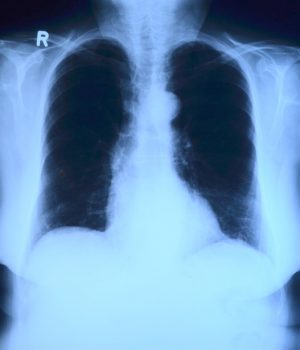
One of the latest accusations faced by the vaping industry is the outbreak of a severe lung disease which is being attributed to e-cig use. Until now there have been 153 reported cases, one of which has sadly resulted in death.
Most of the cases are occurring amongst youth or young adults, and the acute disease appears to be lipoid pnemonia, acute respiratory distress syndrome, and/or chemical pneumonitis. All hospitalized individuals have allegedly reported using e-cigarettes and therefore physicians, health departments, and the CDC alike, have been urging the public to avoid vaping.
Telling former smokers to stop vaping is irresponsible
“There are millions of people who are vaping nicotine-containing e-liquids and it would not be prudent for these millions of people to return to smoking in order to avoid the risk of this “unknown” and “mysterious” medical condition.”
In a blog on his page, public health expert Dr. Michael Siegel has pointed out that such advice coming from health entities is “irresponsible”. He explained that there is such a broad category of vaping products that giving people such advice is not helpful at all.
“There are millions of people who are vaping nicotine-containing e-liquids and it would not be prudent for these millions of people to return to smoking in order to avoid the risk of this “unknown” and “mysterious” medical condition. Moreover, with such vague advice, no one is likely to change their behavior because they are not being warned about any specific, identifiable risk.”
In a recent article on the topic, my colleague Michael McGrady, pointed out that what is even more worrying is the fact that ultimately “there is a lack of clarity about what was vaped by these individuals.”
THC oil implicated in some of the cases
However in his blog, Siegel pointed out that in at least some of the cases, the use of a THC oil, such as butane hash oil, has been implicated, and apparently all the 21 cases in California were attributed to vaping of marijuana. Additionally, all the THC e-liquids linked to these 21 cases were purchased on the street.
“..they should be telling people not to use any e-liquid unless you know what is in it — that is, do not buy products off-the-street and stick to products being sold at retail stores, especially closed cartridges where there is no risk of contamination or the presence of unknown drugs.”
“Since lipoid pneumonia is caused by oil inhalation, it seems pretty clear that those cases diagnosed as lipoid pneumonia are being caused by the use of e-liquids that are oil-based, not alcohol-based,” pointed out the health expert.
“Most nicotine-containing e-liquids are alcohol-based, meaning that they contain as excipients some combination of propylene glycol and glycerin. These products do not pose a risk of lipoid pneumonia. There are some nicotine-containing e-liquids that are oil-based, and these should absolutely be avoided,” he added.
The CDC’s advice is useless
In light of the above, Dr. Siegel has concluded that although there is not “a single common link between all the reported cases, ”there are indeed some further details that the CDC could include in its recommendations. “At a minimum, they should be telling the public not to vape THC oils, including butane hash oil. Second, they should be telling people not to use any oil-based vaping e-liquid product.”
“Third, they should be telling people not to use any e-liquid unless you know what is in it — that is, do not buy products off-the-street and stick to products being sold at retail stores, especially closed cartridges where there is no risk of contamination or the presence of unknown drugs,” he added.
Siegel concluded by pointing out once again, that sadly, the generic advice that the agency is offering so far is useless. “These would actually be useful recommendations that could possibly help prevent further cases. Instead, the CDC and other health groups are providing such generalized and vague advice that it is essentially meaningless.”



![Recent Conference Urged Nations Worldwide to “Quit [Smoking] Like Sweden”](https://www.vapingpost.com/wp-content/uploads/2024/04/vape-conference-238x178.png)







